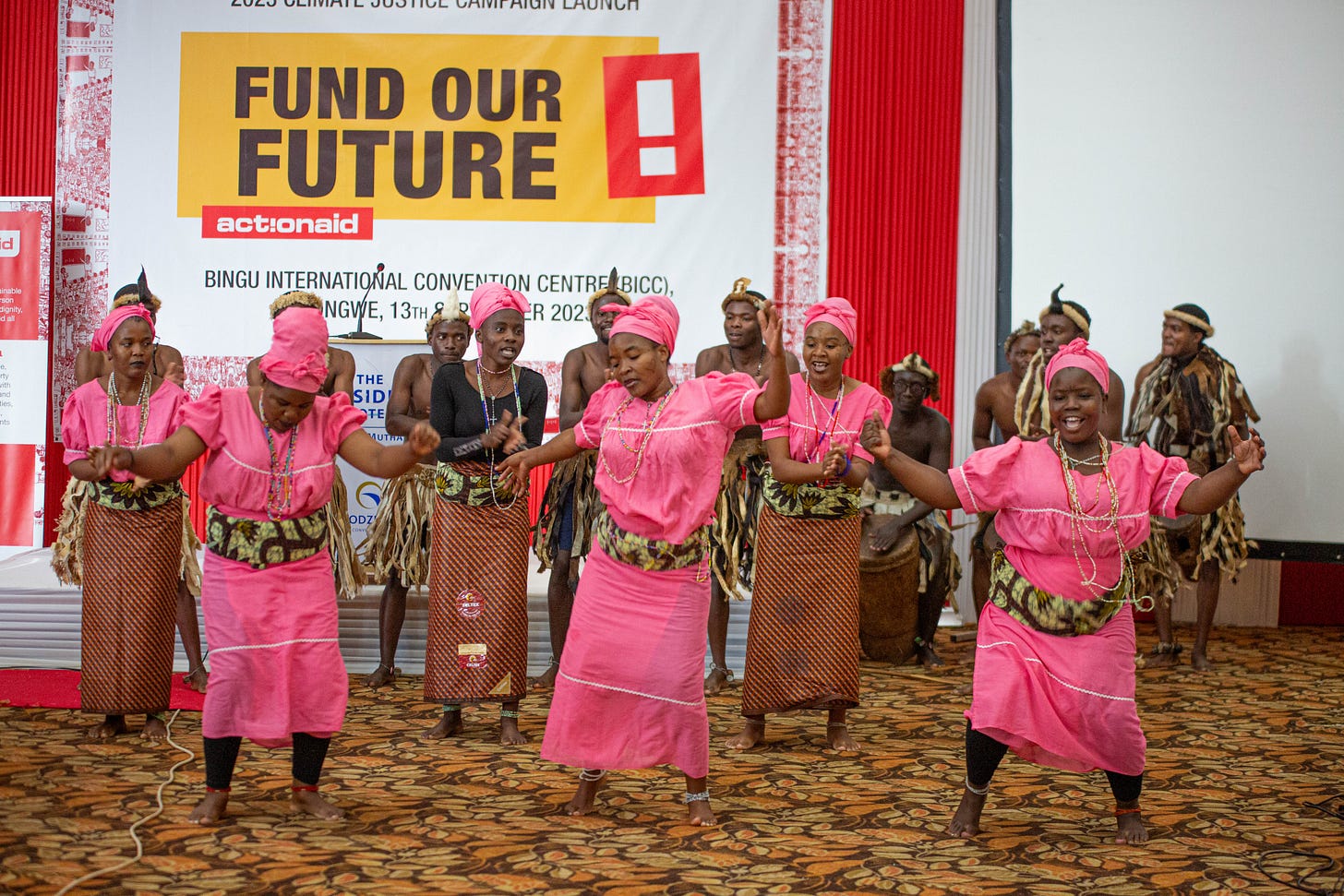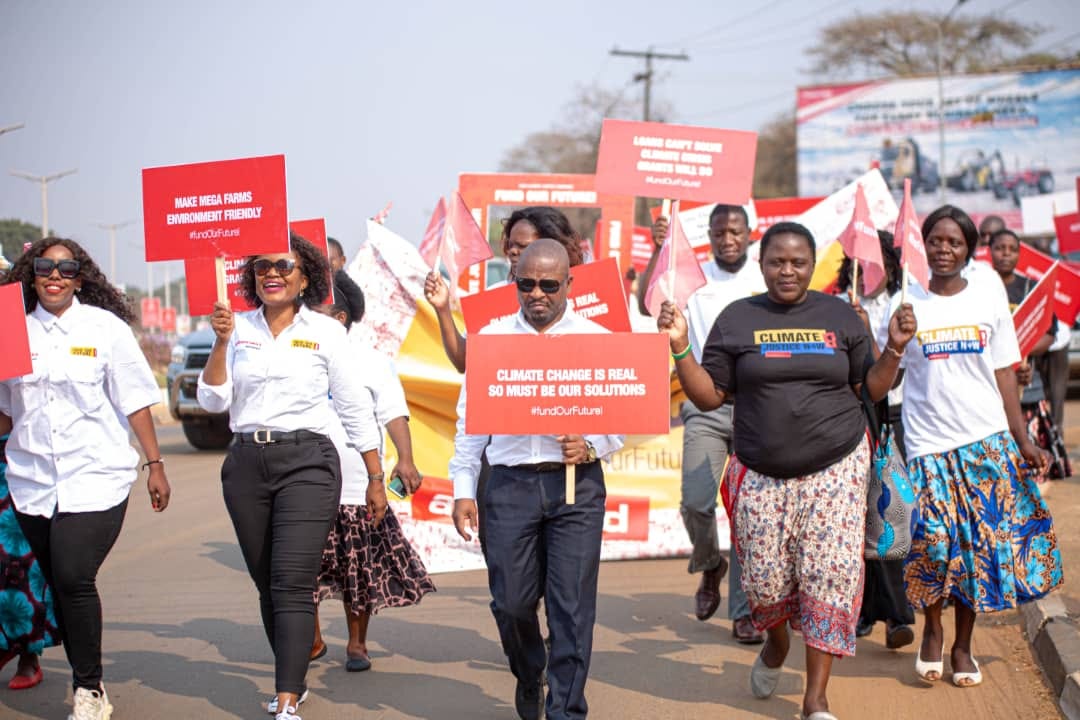FUND OUR FUTURE - How banks are fuelling climate crisis than resilience interventions ?
New Actionaid report on climate justice conducted in 134 countries examined roles played by major international banks in financing fossil fuels and industrial agriculture in the global south

LILONGWE, Malawi (Planet Defence) – New research by Actionaid International has revealed that global financial institutions have financed fossil fuel industry at an estimated amount of US$3.2 trillion in the seven years after the Paris Agreement was adopted to the global south.
However, same banks provided to the largest industrial agriculture companies operating in the same region an amounted of US$370 billion over the same period on climate resilience and agro – ecology interventions.
Banks fuelling fossils
The report conducted in 134 countries looked at the role played by major international banks in financing fossil fuels and industrial agriculture. It also examines the current role of public financing in supporting fossil fuels and industrial agriculture, and how public finance could instead support a transition towards a more sustainable future based on renewable energy and agro – ecology.
A comparative analysis showed that banks have provided an annual average of 20 times more financing to fossil fuels and agriculture activities in the global South than North governments have provided as climate finance to countries on the front lines of the climate crisis.
Micheal Usi, Minister of Natural Resources and Climate Change who was guest of honour applauded Actionaid at the launch of the national campaign titled Fund our Future at Bingu International Convention Centre in Lilongwe. He touted Actionaid as a relevant non state actor looking at the various initiatives the organization is implementing to support communities suffering from the brunt of climate change.
“Knowledge management is very critical. Let’s simplify the message and package it in a manner that should be well understood. Urine is not poison but manure. Let’s spread the good news about the potential it has to improve yields,” Usi explained after appreciating displays that were showcased by communities being supported under various resilience interventions countrywide.
In her turn, Pamela Kuwali, Actionaid Malawi, Executive Director explained the plan is to move the campaign to districts to raise awareness with duty bearers on climate justice and work for environmentally friendly campaign in the long – term.
“Malawi need to own this campaign that aims to highlight the effects of climate change. This year, we felt the impact of tropical cyclone Freddy. The economic crisis we are experiencing is largely because we didn’t have enough food due to the devastating effects of the cyclone,” Kuwali reminded participants the devastating effects experienced earlier this year.
In his presentation Wongani Maguba, Actionaid Programmes and Policy Lead observed that Malawi government were also an accomplice to fuelling climate challenges. Maguba cited for instance the huge budgetary allocation being made to climate harmful areas such as agricultural subsidies.
“Industrial agriculture (75% of 2022/2023 agriculture budget is for fertilizer, only 1% to agro – ecology, agro – ecology slightly more in projects at 17 percent),” explained Maguba in his presentation.

Other areas fuelling climate uncertainties include Investment in fossils fuels and climate harmful energy sources, limited policy guidance, oversight and poor policy frameworks related to climate responsive investments, weakened voice to developed countries and multilateral institutions and abuse of limited funds on agro – ecology and other climate responsive programmes.
Prioritising agro - ecology
In a technical presentation on leveraging agro – ecological system approach to a resilient, sustained, and inclusive development, Professor Vernon Kabambe, an agronomist by specialisation based at the Lilongwe University of Agriculture and Nutural Resources defined agro – ecology as an integrated approach that simultaneously applies ecological, economic and social concepts and principles to the design and management of food and agricultural systems.
“The agro – ecology transitioning model goal one is about reducing soil erosion, improve soil organic matter, improve soil fertility, water use efficiency components contour ridging, mulching, diversity, agroforestry, composting, appropriate forms of in-situ rainwater harvesting. All these are about restoring nutrients into the soil to make them more productive,” Kabambe offered advise saying over cultivated soils needs nourishment as they have lost productivity.
Towera Masiku, board chairperson of the global social justice organization said they are duty bound at the tail end of implementing the Malawi strategy paper with women, girls at the forefront.
She thanked government for prioritising environment and natural resources management sector through the various interventions and urged government to increased funding towards extension advisory services to serve the citizenry out there.
The eighty four page document recommended unconditional debt cancellation so that global South governments can finance their own climate transitions and make rational decisions. The report further called developed countries to first deliver on the overdue UN climate finance target of US $100 billion per year by 2020, in the form of grants.



